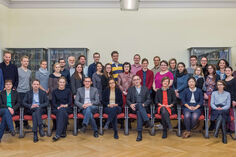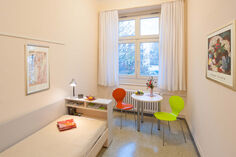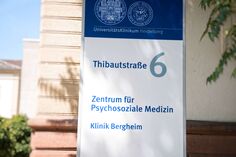Study on modular psychotherapy
A modular add-on approach for patients with comorbid depression and a history of adverse childhood experiences (modular PT vs. CBT)
Principal Investigator: Prof. Dr. S. C. Herpertz
Co-Workers: R. Bullenkamp; F. Herrmann; Dr. J. Hundertmark
Cooperation: Uniklinik Freiburg (Prof. Dr. E. Schramm)
Trial Duration: 2020-2023
Funders: Deutsche Forschungsgemeinschaft (DFG; SCHR 443/16-1)
Despite increasingly efficient disorder-specific psychotherapy procedures for depressive disorders, some patients do not benefit from these procedures. This can be explained, among other things, by the interindividual heterogeneity of the etiological mechanisms of depression, whereby particularly early neglect and abuse can play a significant role. Furthermore the high number of comorbid disorders is not always met by disorder-specific treatments.
In order to tackle these challenges, individualized modular therapy underlying this project complements conventional cognitive behavioural therapy (CBT) with modular elements. These address specific dysfunctions associated with child abuse and aim to improve social processes, question negative valence systems, and further train the regulation of emotions. The modules are selected on the basis of the impaired functional areas collected by self-reports.
All patients participating in the study, who currently suffer from a comorbid depressive disorder receive 20 individual sessions of psychotherapy, which are performed either modularly or as classical CBT. The aim of this bicentric feasibility study is to gain initial knowledge of the effectiveness and feasibility of modular psychotherapy as well as to capture the satisfaction of therapists and patients.



